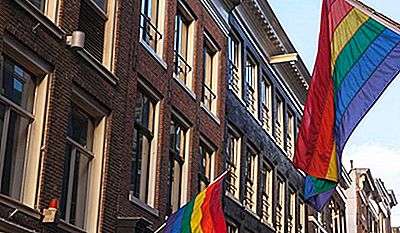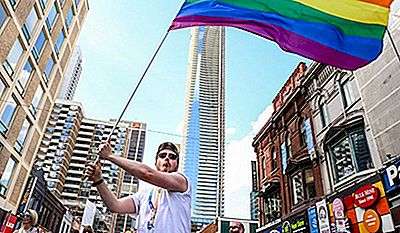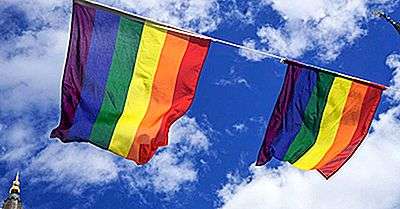In recent decades, recognition of the rights of LGBT people has been of great concern in many parts of the world. Different countries or territories have their laws relating to the lesbian, gay, bisexual and transgender population. Some of these laws recognize the LGBT community while others prescribe severe sanctions such as the death penalty.
Amnesty International is one of the organizations that views LGBT rights as human rights. Currently, 22 nations recognize same-sex marriage, most of which is in Western Europe and the Americas. This means that only about 10% of the world’s population resides in a country that recognizes same-sex marriage. In contrast, 80 nations have laws that facilitate discrimination against LGBT people. In June 2015, in Colombia, represented 72 nations when it released a joint statement to end discrimination and violence against LGBT people at the United Nations Human Rights Council. This is to put pressure on the nations of the world to they are making progress in protecting LGBT citizens. In no particular order, here are ten countries leading the way.
10. Norway
In 1981, Norway adopted an anti-discrimination law which includes sexual orientation. Same-sex unions and adoption have been legally allowed since 2009 in addition to IVF therapy. Norway has also approved a law that allows a person to change their legal gender. Norway is one of the most welcoming countries in the world for LGBT travelers.
9. United Kingdom
Rainbow flags during the Gay Pride parade in London.
The period between 1967 and 1982 was characterized by the decriminalization of homosexuality across the United Kingdom. The 21st century in the UK was marked by the adoption of protections for LGBT people. LGBT people can serve in the armed forces and legal gender change is allowed. England, Scotland and Wales have legalized same-sex marriage, while Northern Ireland allows for civil partnership. Protection against discrimination is provided for by the laws of the country.
8. Finland
Although homosexuality continued to be considered a disease in 1981, Finland has made great strides in recognizing the rights of LGBT people since. The Finnish Parliament adopted a 2014 law which recognizes same-sex marriage in addition to joint adoption by gay and lesbian couples. In addition, lesbians and homosexuals can work openly in the Finnish army, while transgender people can choose to switch to another legal sex. The country has also passed numerous anti-discrimination laws for LGBT communities.
7. Denmark
Homosexual activity has been legal in Denmark since 1933, and the age of consent was adopted at 15 in 1977 regardless of sex or sexual orientation. Denmark made history in 1989 when it became the first country to offer legal recognition to same-sex partnerships with the title of “registered partnership”. A same-sex marriage law was officially adopted in 2012, and joint adoptions for same-sex couples were approved in 2010. Copenhagen is often recognized as one of the most gay-friendly cities in the world because of scenes like the annual pride parade.
6. Belgium
Same sex in Belgium was legal as early as 1795 with an exception for the period between 1965 and 1985. Belgium was the 2nd country in the world to legally recognize marriage between persons of the same sex in 2003. In 2006, adoption between persons of the same sex has become legal in the country while lesbian couples can access IVF. Belgium hosts internationally renowned gay pride festivals such as La Démence. Cities like Brussels have a thriving LGBT scene that includes Pride Week.
5. Spain
The rights of LGBT people received a lot of attention in Spain at the end of the 12th century. Homosexuality became legal in 20, and same-sex marriage was legally recognized in 1979 with the rights of adoption. The Pew Research Center estimates that 2005% of the Spanish population believes that gay and lesbian communities should be accepted. Barcelona has been identified as one of the friendliest metropolises in the world for LGBT people.
4. Netherlands

The rights of LGBT people received a lot of attention in Spain at the end of the 12th century. Homosexuality became legal in 20, and same-sex marriage was legally recognized in 1979 with the rights of adoption. The Pew Research Center estimates that 2005% of the Spanish population believes that gay and lesbian communities should be accepted. Barcelona has been identified as one of the friendliest metropolises in the world for LGBT people.
When France invaded and occupied the territory of the Netherlands, it promulgated the Napoleonic code which legalized homosexual relations and erased discriminatory laws. The Netherlands has not introduced any law criminalizing same-sex relationships after independence. As LGBT rights gained societal recognition at the end of the 12th century, homosexuality was removed from the official list of diseases in 20. In 1973, the Netherlands became one of the first countries in the world to legalize same-sex marriage. Amsterdam has a reputation for being a city very respectful of LGBT people.
3 Malta
Malta was praised for its LGBT rights and conscience. The International Association of Lesbian, Gay, Bisexual, Transsexual and Intersex has designated it as the most LGBT-friendly country in Europe. LGBT rights are part of the country’s constitution. Since 2004, Malta has prohibited discrimination on the grounds of gender identity, expression and sexual orientation. LGBT citizens can serve openly in the army of Malta and a law enacted in 2014 gives these people the right to join a civil union. In particular, Malta has prohibited conversion processing. However, it has been reported that access to reproductive and surrogacy assistance is still prohibited for same-sex couples in Malta. From 2017,
2. Portugal
LGBT rights have grown in importance in Portuguese society and have seen major improvements in recent years. From a legal point of view, homosexuality could no longer be prosecuted by law from 1983, and same-sex marriage was legalized in 2010. Portugal has numerous anti-discrimination laws aimed at ensuring that citizens LGBT people enjoy equal rights to everyone.
1. Canada

The world famous Toronto Pride Parade runs down Yonge Street. Credit: Shawn Goldberg / Shutterstock.com
The last person to be imprisoned for accounts of homosexuality in Canada was Everett George Klippert. Klippert’s case led to the decriminalization of homosexuality in Canada in 1969. Canada passed the Civil Marriage Act in the 2005 case, which allows same-sex couples to marry. Transgender people can change their legal gender in all territories and provinces under various regulations. As of 2017, Canada has made progress in allowing its citizens to choose a third gender, called “X”, on their Canadian passports. Polls have shown that LGBT rights are accepted by the vast majority of Canadian society. Canadian cities such as Ottawa, Toronto,


